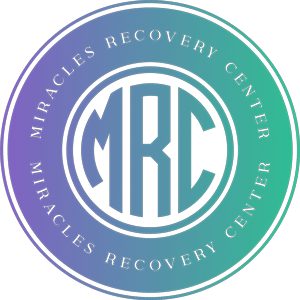Choosing the right outpatient program for your integrated recovery journey can feel overwhelming. With so many options available, it’s hard to know where to start. This guide will walk you through each step to help you make the best choice for your needs.
1. Assess Your Personal Needs
Before you start looking at programs, it’s important to assess your personal needs. What are your recovery goals? Do you need support for mental health, substance abuse, or both? Understanding your specific requirements will guide you in choosing the right program.
Take some time to reflect on your past experiences and what has or hasn’t worked for you in the past. Do you prefer one-on-one sessions, or do you thrive in group settings? Knowing your preferences will help tailor the search to options where you’ll feel most comfortable and supported. Additionally, consider any underlying or co-occurring conditions you may have, as some programs are better equipped to handle complex cases. Writing down your thoughts can be very helpful.
It’s also a good idea to involve those you trust in this process. Talk to friends, family members, or a healthcare provider about your needs and get their input. Sometimes, an outside perspective can provide valuable insights you might not have considered. Don’t forget to think about practicalities—like whether the program location is conveniently accessible from your home or work.
2. Research Available Programs
Now that you know your needs, start researching the available outpatient programs. Look for programs that specialize in integrated recovery, combining mental health and substance abuse treatments. Make a list of potential options.
The internet is a great resource for finding outpatient programs. Start with a general search and then narrow it down by reading detailed descriptions on program websites. Look for features such as program duration, treatment methods, and the types of services offered. Don’t hesitate to dig deeper into reviews and testimonials.
If you have health coverage, your insurance company might have a list of approved providers and programs. This can be a great starting point that saves you time and effort. Also, don’t overlook community resources such as hospitals, local health departments, and nonprofit organizations which often have valuable information and recommendations.
Another way to get reliable information is by joining online forums or support groups where you can hear firsthand experiences from others who have gone through integrated recovery programs. Their journeys can provide a clearer picture of what to expect and help you better evaluate your options.
3. Evaluate Program Credentials
Once you have a list, evaluate the credentials of each program. Check if they are accredited, look at the qualifications of their staff, and read reviews from past participants. A program’s reputation can tell you a lot about its quality.
Accreditation is an important indicator of a program’s credibility. Look for programs accredited by recognized organizations like the Joint Commission or CARF. These organizations have stringent standards that programs must meet, ensuring high-quality care. Also, examine the types of therapies and treatments the staff are certified in. Credentials like LCPC (Licensed Clinical Professional Counselor) or LCSW (Licensed Clinical Social Worker) reflect a higher level of expertise.
Pay attention to the program’s success rates. A reputable program should have some statistics or data indicating their effectiveness. While numbers can be informative, balance this information with qualitative feedback from past clients. Reading in-depth reviews and testimonials can give you a sense of the program’s environment, staff, and overall efficacy from the patient’s perspective.
4. Consider the Treatment Approach
Different programs use different treatment approaches. Some might focus more on therapy, while others might incorporate medication or holistic methods. Consider what approach resonates with you and would best support your recovery journey.
Knowing your own preferences and needs will help guide this decision. If you find that talk therapy is highly effective for you, you may want a program that offers extensive counseling services, like Cognitive Behavioral Therapy (CBT) or Dialectical Behavior Therapy (DBT). On the other hand, if medication-assisted treatment is part of your plan, make sure the program has experienced medical professionals who can manage this aspect.
Holistic treatments are another aspect to consider. These might include practices like yoga, meditation, and acupuncture, which can support mental and physical well-being. It’s essential to find a program whose treatment philosophy aligns with your own beliefs and comfort level.
Some programs also offer comprehensive family therapy options. If your recovery involves rebuilding strained family relationships or seeking support from loved ones, this aspect could be crucial. Family therapy provides a safe space for open communication, helping everyone involved to understand each other better.
5. Check Program Flexibility
Flexibility is key, especially if you have a busy schedule. Look into the program’s schedule and see if it offers flexible timings that can fit into your daily life. A program that allows you to balance recovery with your other responsibilities is ideal.
Even the most effective program is useless if you’re unable to commit to attending. Find out if the program offers evening or weekend sessions if you work regular hours. Some programs may offer telehealth options, which allow for therapy sessions conducted online. This can be extremely convenient if travel or situational constraints make in-person visits challenging.
In addition to time flexibility, consider the program’s duration and frequency. Some programs run for a few weeks, while others may last several months. Ensure that the program’s timeline aligns with your recovery needs and availability. Longer programs can provide extended support, but shorter intensives may also be effective for some individuals.
6. Assess Support Systems
Support systems are crucial in recovery. Check if the program offers additional support like group therapy, family counseling, or aftercare services. Knowing that you have a strong support network can make a big difference in your recovery.
Programs that incorporate group therapy can be particularly beneficial for integrated recovery. Sharing experiences with peers can provide emotional support and create a sense of community. Hearing others’ stories and successes can offer motivation and perspective for your own journey.
Family involvement can further enhance recovery. Family counseling sessions can help members learn how to support you effectively and understand the challenges you face. This collective participation can strengthen familial bonds and promote a healthier home environment.
Aftercare services are another vital component to look for. A good program doesn’t just leave you at the end of your sessions. Look for those that offer continued support through alumni programs, follow-up counseling, or online resources. This ongoing assistance can make a significant difference in maintaining long-term recovery.
7. Plan Your Finances
Finally, consider the cost and payment options of each program. Check if they accept insurance, offer payment plans, or have financial aid options. Planning your finances in advance will help you avoid unexpected stress and focus on your recovery.
Outpatient programs can vary widely in cost, depending on their services, duration, and location. Some high-end programs might offer luxurious amenities but come with a hefty price tag, while others may be more affordable and still provide excellent care. Evaluate what you can realistically afford without compromising essential aspects of the program.
Look into insurance coverage as it can significantly reduce your out-of-pocket expenses. Contact your insurance provider to understand what’s covered and if there are any out-of-network considerations. Some programs have dedicated staff to help you navigate insurance claims and financial planning, making the process smoother.
Don’t forget to inquire about sliding scale fees or scholarships that some programs offer. These financial aids are designed to make high-quality care accessible to all, regardless of financial status. Early financial planning will pave the way for a more focused and successful recovery journey.





